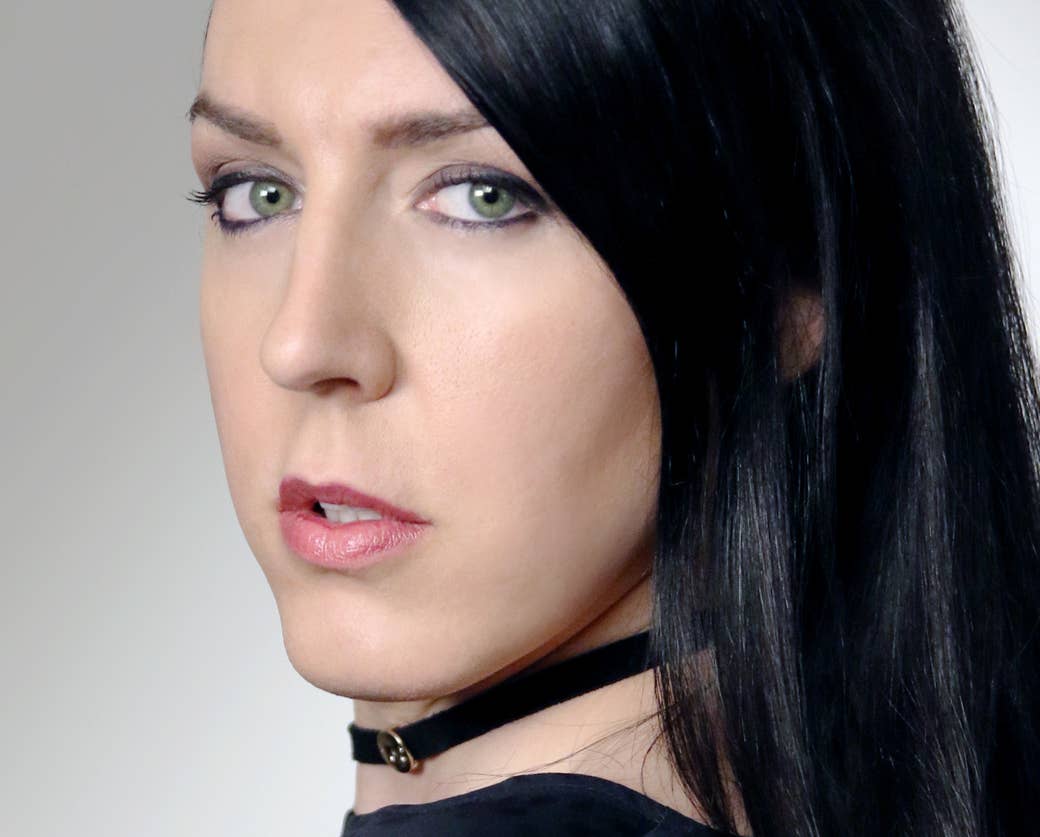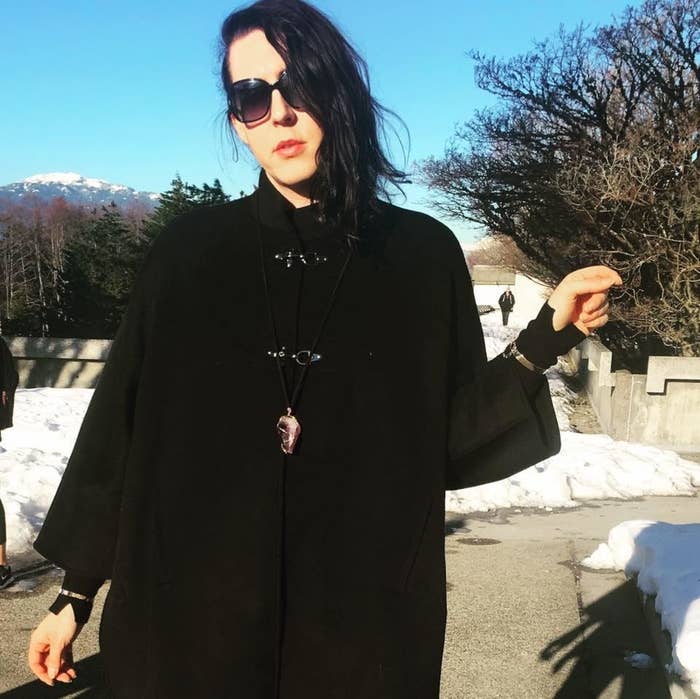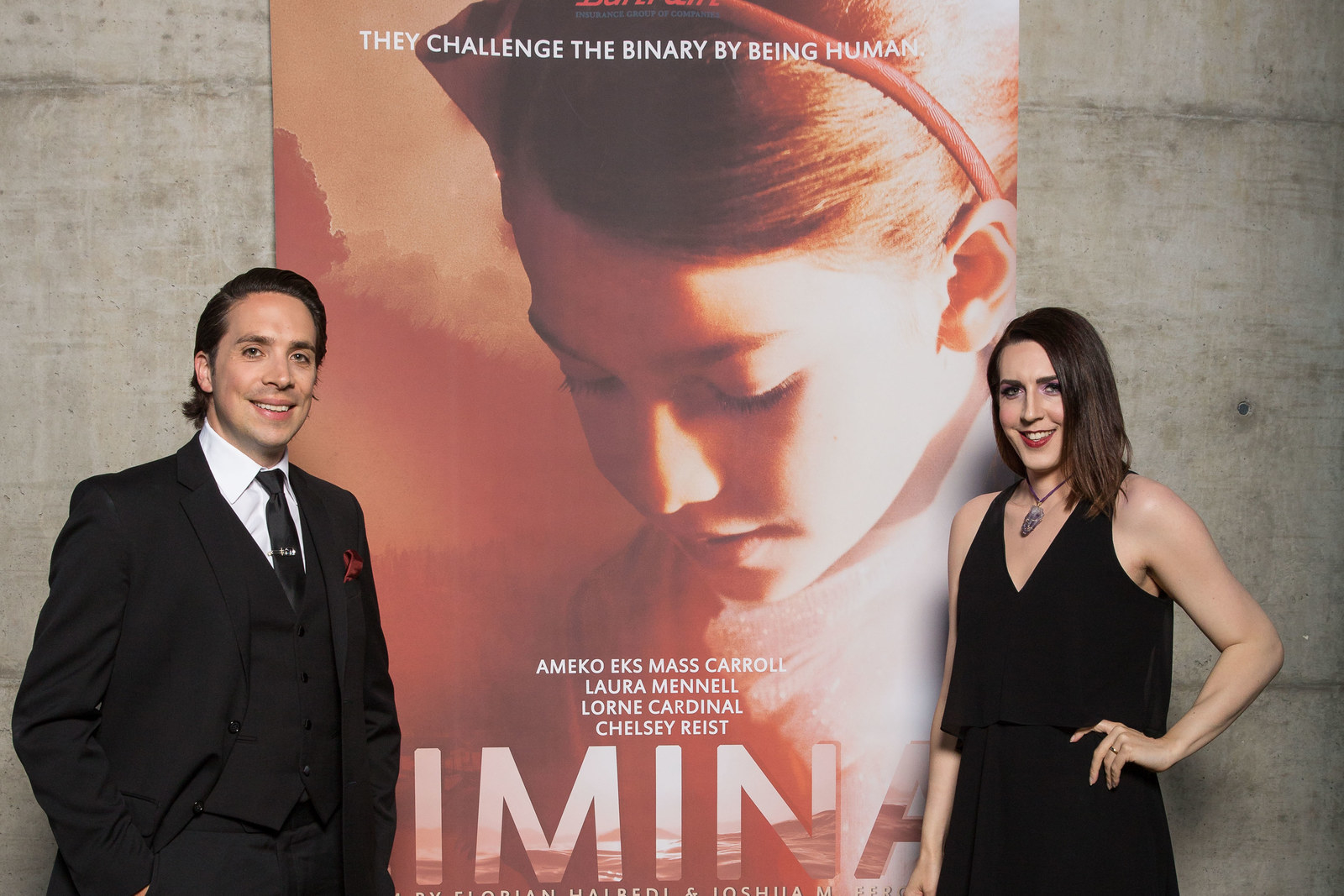
A few weeks ago, I was erased for about the thousandth time.
It was during a Channel 4 News interview with feminist novelist Chimamanda Ngozi Adichie. She suggested that while trans women might be women, they are different from cis-women because they have been raised in circumstances that afforded them male privilege prior to transitioning. “It’s difficult for me to accept that then we can equate your experience with the experience of a woman who has lived from the beginning as a woman and who has not been accorded those privileges that men are,” she said.
At best, it was a gross oversimplification. I was assigned male at birth, but I didn’t feel any male privilege as I was repeatedly verbally and physically assaulted because of my feminine gender expression during my childhood and adolescence. But I’m also not a trans woman. In fact, Adichie didn’t talk about me at all.
I am non-binary. I am neither a man or a woman. And despite a refusal from even some feminists to see gender beyond the binary, I am not going away.
To exist as non-binary is to endlessly reassert ourselves in the face of those who reduce us, again and again, to the binary of men and women. I'm made to float between the truth of my identity and a fiction imposed upon me. It’s the people who refer to me as sir, or use he/him/his instead of my gender-neutral pronoun, they/them. Or referring to me as Josh despite my constant reminders that my name is Joshua.
I have to reassert my visibility over and over. In the face of that, just being seen is hard work. I take selfies, I shoot short videos on my iPhone, and I write essays like this, all to claim a space where I exist. It’s a battle and it’s tiring, which is why people like me tend to get used to being resilient. But it’s made even harder when those who would be our allies don’t see us.

I work in the arts industry, a space full of prolific feminist filmmakers and scholars — powerful and autonomous women have inspired me since my childhood. I assumed I’d be welcome here. But, even here, like so many other feminist circle where cis-women have the floor, I feel excluded.
I have felt the impact of this exclusionary feminist perspective in the media arts world where people like me are ignored or simply erased. Some women’s organizations, film festivals and grants created for women-identified people exclude non-binary trans people from their mandates and eligibility criteria. Why aren’t they fighting for people like me, too? I have had experiences with festival programmers, leaders of organizations, and granting officers who told me that I am the first person raising the issue of including non-binary people in their mandates. Which, fine. But those moments of realization aren’t turned into moments of action.The opportunities to recognize us are there — they’re just not being taken. But this moment of realization should be used to make change instead of further denying to recognize us. Some non-binary people experience forms of misogyny, in ways similar to the misogyny experienced by woman-identified people. Masculine presenting non-binary people may be read as failed women and experience discrimination and violence as a result. Not only that, this exclusion is compounded by other intersections of our experiences: By racism for non-binary people of colour and by ableism for non-binary people with disabilities.
We are underrepresented, our work is underfunded, and the resources and funding opportunities made available by women-centered organizations are not open to us. Of course, women are also impacted by gender discrepancy in the Canadian film and television industries and in other countries. A recent report by the Canadian Unions for Equality on Screen in the fall of 2016 highlighted that women directors make up less than 20% of directors getting jobs in Canada. I can only assume the percentage of non-binary directors getting jobs in Canada wouldn’t even register.
I was not born in the wrong body, which is how some trans men and trans women describe their dysphoria. I do not have a static sense of my body or my gender in the first place.
Perhaps part of the problem here is that non-binary narratives are often excluded from mainstream understandings of trans people. I was not born in the wrong body, which is how some trans men and trans women describe their dysphoria. I do not have a static sense of my body or my gender in the first place. My body and the relationship that I have with my gender is constantly shifting. My transition story is one you might not have heard of yet. For me, transition is not a linear one-way direction with a beginning, middle and ending. I will likely never arrive at the end of my transition. My gender is fluid and my sexed body shifts with my gender identity and expression.
The recent TIME magazine’s cover story entitled “Beyond He or She” suggests that we are new. But non-binary people have always been here, you just didn’t see us before. A 2015 comprehensive survey conducted by Transgender Centre for Equality in the U.S. reported that one-third of trans people identify as non-binary. The emergence of non-binary visibility is setting the stage for a gender revolution that will inevitably change the mainstream understanding of gender as only and always a binary. Cultural, historic and, yes, scientific studies call into question the binary-based system of sex and gender.
Here in Canada, the politically motivated delays of Bill C-16, which would afford human rights protections to trans Canadians, has been discouraging. But there are bright spots, like Ontario’s recent decision to allow a gender neutral sex marker on driver’s licenses. And in the US, states like California and Oregon are recognizing non-binary gender. These decisions are setting precedents for non-binary legal recognition in North America.

We’ve also seen key moments in the last year for non-binary recognition. Asia Kate Dillon became the first non-binary actor cast in a non-binary role in Showtime’s Billions, gender-fluid actor Kelly Mantle made history when the Academy Awards accepted him into both male and female performer categories, and my film Limina made history in Canada when our lead gender-fluid identified actor Ameko Eks Mass Carroll, a young gender-fluid performer, was accepted into both male and female categories at a major awards organization.
These changes matter, because non-binary people should be counted in society. We shouldn’t have to constantly fight for recognition. We should be seen and heard in the movements that are already striving for equality, particularly feminism. Feminist perspectives that work to exclude trans people, trans men, trans women and non-binary people, are one of the major barriers in recognizing the truth that gender is more than just the binary.
Feminism needs to name and alter transphobic and non-binary exclusionary practices. We need to label trans-exclusionary policy and practices as anti-feminist, and reject the notion that one can be both a feminist and contribute to the erasure and discrimination that is perpetrated against trans people, including non-binary trans people.
I imagine a time when all people are recognized for our beautiful diversity.
I imagine a time when the myth of human simplicity washes away and the fear is stripped free to welcome people for who they are rather than who you tell me to be.
I imagine a time when you see me.
We are neither men or women and we are not going away.
Joshua M. Ferguson is a non-binary trans and queer filmmaker, writer, activist, indigo with a love for magic.
